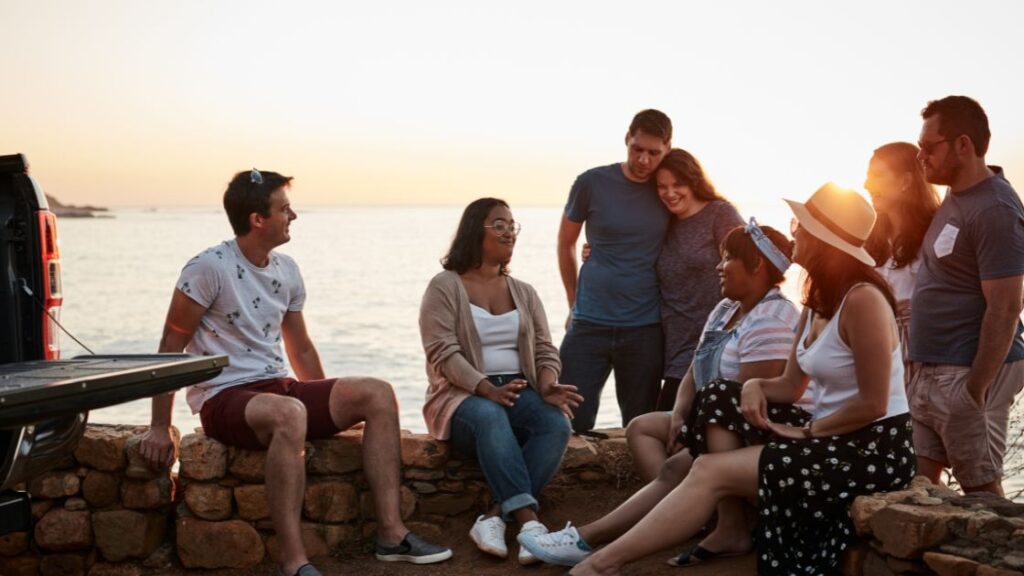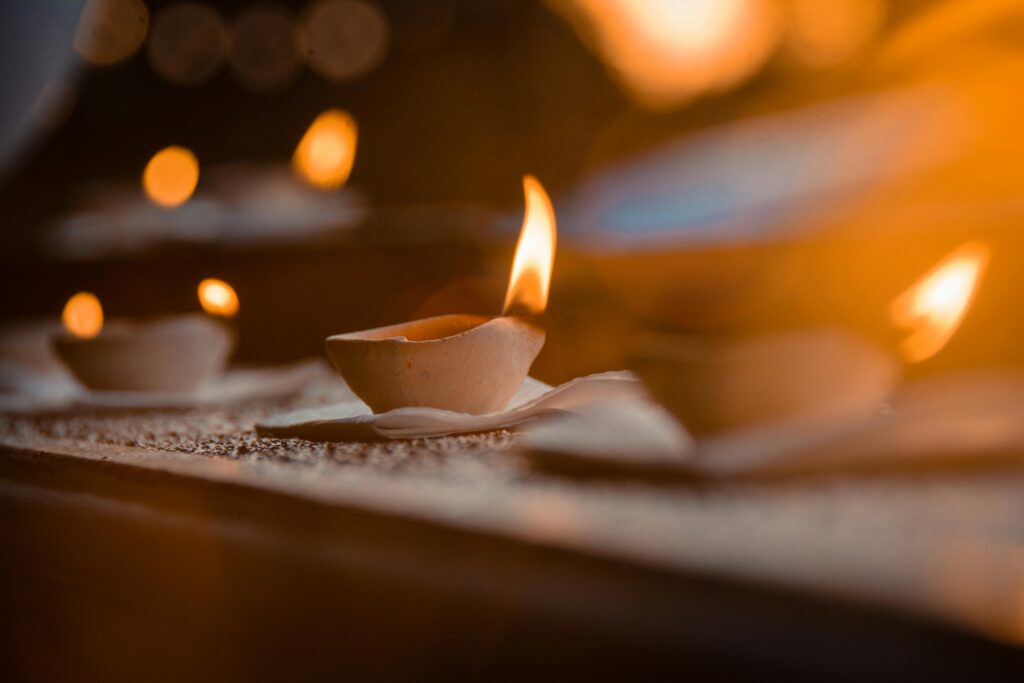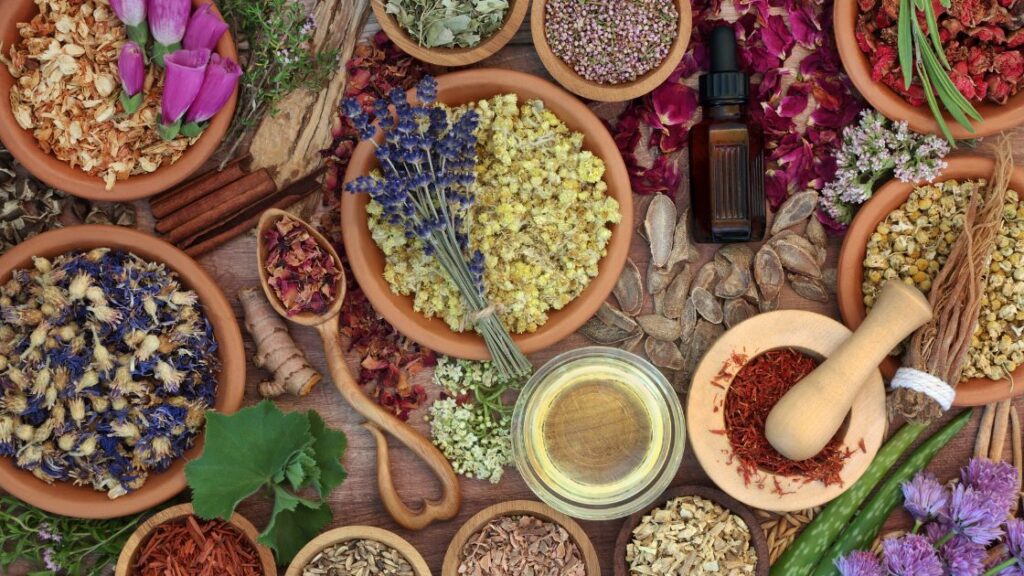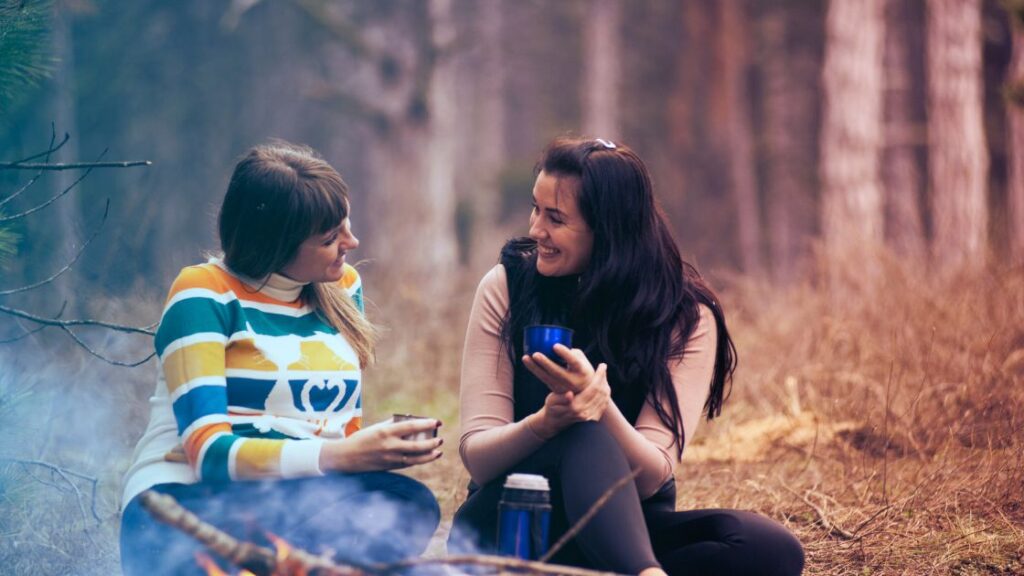There are several life skills for adults that we often think of as old-fashioned or unnecessary in today’s world. Yet because of their deep connection to the wisdom of our forebears, these practices and habits offer valuable insights for modern lifestyles. As we navigate the complexities of our technologically rich landscape, we can draw inspiration from ancient practices that have stood the test of time. Let’s explore seven of these time-honored habits and discover how they can enrich our lives today.
Communication: Cracking the Code of Connection
Picture our distant ancestors gathered around a fire, sharing stories etched in smoke and starlight. Their survival depended on effective communication—warning of predators, mapping out hunting grounds, and passing down tribal lore. Fast-forward to today: our screens glow, our thumbs dance across keyboards, and emojis convey emotions. Yet, the essence remains unchanged. Meaningful connections thrive when we listen deeply, speak honestly, and bridge the gaps between hearts. So, let’s weave our digital threads into a tapestry of understanding.
Why does this skill matter? Meaningful connections thrive when we listen deeply, speak honestly, and bridge the gaps between hearts. Effective communication enhances relationships, both personal and professional.
We all learn basic communication as we grow, but you can continually improve this important skill! Here are some ways:
- Active Listening Workshops: Attend workshops or read books on active listening. Understand the nuances of truly hearing others. Here’s a list of 10 courses from a variety of providers to explore.
- Public Speaking Classes: Overcome stage fright and learn to express yourself confidently. Toastmasters International is a great resource.
- Nonviolent Communication (NVC): Dive into Marshall Rosenberg’s book on NVC: Nonviolent Communication: A Language of Life: Life-Changing Tools for Healthy Relationships. It can help build empathy and resolve conflicts.
Fermentation: A Flavorful Journey Back in Time

In the quiet corners of our kitchens, a magical alchemy unfolds—a dance of microorganisms transforming cabbage into sauerkraut, tea into kombucha, and flour into sourdough. Fermentation, an ancient practice, connects us to our culinary ancestors. As we nurture our kimchi jars and tend to our bubbling brews, we honor their wisdom. These tangy, probiotic-rich foods not only tantalize our taste buds but also nourish our gut microbiome. So, let’s raise our glass (or mason jar) to the art of fermentation!
Why is this life skill for adults important? Fermented foods are not only delicious but also beneficial for gut health. By mastering this skill, you connect with ancestral wisdom while nourishing your body.
Want to get started? Here are some places to learn this life skill for adults:
Online Courses and Workshops: Explore platforms like Udemy, Coursera, or Skillshare for courses on fermentation. Learn about different techniques, safety precautions, and flavor variations. Here are two self-paced examples:
- Self-Paced Course from HarvardX, Food Fermentation: The Science of Cooking with Microbes
- Self-Paced Online Fermentation Courses from Fermenters Club Academy
Books: Dive into books like Sandor Katz’s “The Art of Fermentation” or “Wild Fermentation.” These texts offer practical guidance and historical context.
Local Workshops and Meetups: Check if there are local fermentation workshops or community gatherings. Hands-on experience and shared knowledge can enhance your skills.
Minimalism: Decluttering the Soul’s Attic

In a world of excess, minimalism whispers ancient truths. Stoics pondered simplicity, Buddhists sought detachment, and Taoists danced with the rhythm of nature. Our ancestors knew that possessions could weigh down the spirit. It’s an excellent life skill for adults that want to declutter their minds, their homes, and their schedules. Imagine a room with bare walls—a canvas for experiences, laughter, and quiet contemplation. Minimalism isn’t about scarcity; it’s about savoring what truly matters.
Why is keeping “stuff” in check an important life skill for adults? By simplifying, we create space for experiences, relationships, and personal growth.
How can you cultivate this life skill?
- Declutter Challenges: Participate in declutter challenges like the “30-Day Minimalism Game.” Each day, discard or donate items.
- Read Minimalist Blogs: Explore blogs like “Becoming Minimalist” by Joshua Becker or “The Minimalists.” They offer practical tips and mindset shifts.
- Practice Mindfulness: Minimalism isn’t just about physical possessions. Practice mindfulness to declutter mental clutter too. Here’s a guide from mindful.org for getting started!
Storytelling: A Life Skill for Adults Seeking Context

Around campfires, elders wove tales—their voices like invisible glue binding generations together. Stories weren’t mere entertainment; they were lifeblood. They carried wisdom, encoded values, and developed identity. Today, we’re storytellers too. Our Instagram captions, blog posts, and whispered confessions—they ripple through time. We spin narratives that celebrate our quirks, honor our scars, and connect us across oceans and epochs. In pixels or ink, we etch our existence into eternity.
Why should you develop storytelling skills? Stories connect us and foster a sense of community. They provide context for our lives and carry important lessons and values to share with our friends, families, and culture.
Want to learn this skill? Here are some ideas:
- YouTube Tutorials: Search for tie-dye tutorials on YouTube. From spiral patterns to ice dyeing, there’s a wealth of knowledge.
- Experiment: Grab old white T-shirts and start experimenting. Mix colors, twist fabric, and see what emerges.
- Learn Color Theory: Understand how colors interact. Complementary hues create striking tie-dye designs.
Prayer: Conversations with the Cosmos

Our ancestors gazed at stars, whispered to trees, and knelt on sacred ground. Prayer—whether to gods, spirits, or the universe—was their connection to something greater than themselves. Today, our altars may be virtual, our words typed into screens, but the longing remains. We seek solace, guidance, and connection. We can close our eyes, breathe in the cosmic dust, and send our hopes into the ether. Prayer isn’t about answers; it’s about communion. Whether we chant mantras or scribble wishes on paper, we touch the divine within.
Why is prayer a useful life skill for adults? In our fast-paced lives, prayer offers a pause—a chance to recalibrate, express gratitude, and seek guidance. It’s a cosmic hotline to our deepest selves.
Would you like to become more tuned in through prayer? Here are a few practices to try:
- Meditation Practices: Explore meditation techniques. Whether secular or rooted in a specific tradition, meditation allows us to quiet the mind, connect with our inner selves, and touch the cosmic pulse. Apps like Headspace or Calm offer guided sessions.
- Nature Immersion: Our ancestors found the divine in rustling leaves, babbling brooks, and moonlit nights. Spend time in nature—walk barefoot on grass, listen to birdsong, and feel the earth’s heartbeat. Nature is the original cathedral.
- Sacred Texts: Dive into sacred texts from various traditions. Whether it’s the Bhagavad Gita, the Tao Te Ching, or Rumi’s poetry, these ancient words hold timeless wisdom. Reflect on their verses and let them resonate within.
Fire: Dancing with Prometheus’ Gift

Picture the first spark—the moment our ancestors tamed fire. It warmed their caves, roasted their meat, and illuminated their dreams. Fire was magic, science, and survival rolled into one. Today, our stovetops flicker, candles sway, and campfires crackle. We gather, mesmerized by flames—their dance echoing ancient rituals. Why not toast marshmallows, share secrets, and honor Prometheus? Fire connects us across millennia, reminding us that warmth is more than heat—it’s the glow of shared stories.
Why are fire-related experiences important? Fire connects us to our human roots, reminds us of the many ways community sustains us, and allows us to bask in the life-giving powers of creativity.
What can you learn related to fire?
- Campfire Cooking: Gather friends around a campfire. Roast marshmallows, bake potatoes, and share stories. Cooking over an open flame connects us to primal instincts. You’ll find an extensive playlist of campfire cooking videos from the Kent Survival channel HERE.
- Fire Safety: Understand fire safety protocols. Learn how to build a safe campfire, extinguish it properly, and prevent wildfires. The gift of fire comes with responsibility! Brush up on your outdoor fire safety skills with this guide from the US Fire Administration.
- Fire Ceremonies: Explore fire rituals from different cultures. From solstice bonfires to fire-walking ceremonies, these practices honor the element’s power. Learn about participating in a sacred fire ceremony in this video from Kent University.
Herbal Medicine: Nature’s Apothecary
In forests and meadows, our ancestors foraged for healing. They brewed teas, crushed leaves, and whispered incantations. Herbal medicine was their pharmacy—a blend of science and intuition. Today, we sip chamomile for calm, chew ginger for digestion, and inhale lavender for sleep. The earth offers remedies—gentle and potent. So, let’s explore dandelion roots, elderberry syrups, and mint-infused dreams. In each leaf, we find whispers of ancient healers—their wisdom steeped in petals.
Why is it important? Herbal medicine is more than remedies; it’s a dance with nature. By understanding plants, we honor our ancestors’ wisdom and support our well-being.
Want to learn more about herbal medicine?

- Wildcrafting: Learn to identify local medicinal plants. Attend workshops or find field guides specific to your region. Respect ecosystems and harvest sustainably. Here’s an introductory course from Outschool to consider.
- Herbal Courses: Explore online courses on herbal medicine. Platforms like Herbal Academy offer comprehensive programs. Understand plant properties, preparation methods, and dosage.
- Community Gardens: Join community gardens or start your own herbal patch. Growing and nurturing medicinal plants deepens your connection to their healing magic.
Remember, ancestral living isn’t about rejecting modernity—it’s about finding harmony between old and new. By incorporating these practices, we honor our roots and create a more balanced, sustainable, and fulfilling life.
For more life skills for adults ideas, take a look at Best Old-Fashioned Life Skills for Adults to Learn Now. The hardest part will be choosing where to start!


